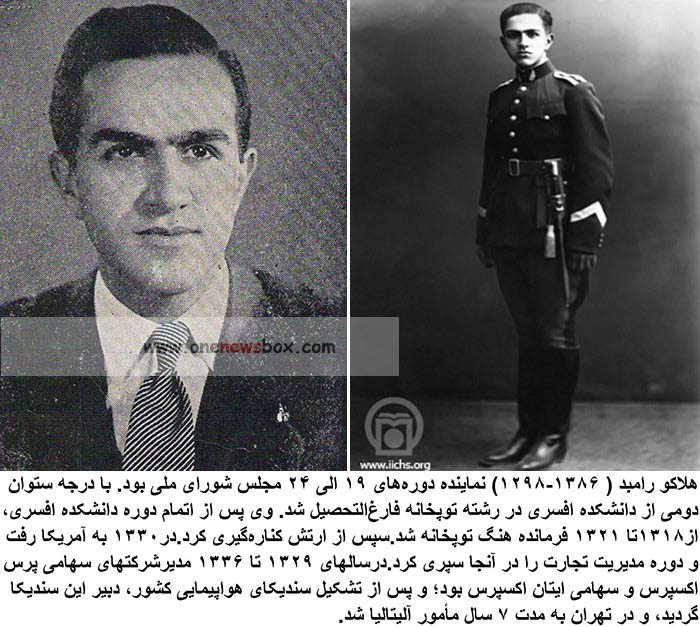Hulako Rambod was born into a distinguished lineage on November 18, 1298 (Persian calendar; corresponding to November 18, 1919 Gregorian) in the city of Tehran. His ancestry was deeply embedded in the political and tribal structure of Iran’s Qajar era. He was the youngest son of Mohammad Hossein Khan Karganroudi, widely known by his honorific Salar Asad. Salar Asad was the progeny of Nasratollah Khan Sardar Amjad, a prominent and long‑standing ruler of the Khamseh‑e‑Talaash region during the Qajar period.
On his mother’s side, Hulako inherited further links to Iran’s parliamentary legacy. His mother, Shaukat al‑Dawlah, was the daughter of Mirzam Mahmoud Khan Allamir, also known by his aristocratic title Ehtesham al‑Saltanah. Notably, Ehtesham al‑Saltanah had served as the second Speaker of the first term of INational Assembly (Majles), placing Rambod in direct descent from parliamentary leadership.
Growing up in Tehran, young Hulako Rambod was surrounded by political discourse, nobility, and a consciousness of service. The presence of his grandfather Ehtesham al‑Saltanah, a founding figure in constitutional movement, had a palpable influence on his formative world. Even as a child, Rambod absorbed notions of civic duty and political responsibility—ideas that would one day shape his career.

